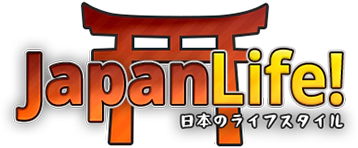J-Spot Social Network
Fanclubs & Study Groups
Find New Friends / Pen-Pal





























| ENGLISH | ROMAJI | JAPANESE | DESCRIPTION |
|---|---|---|---|
| Zero | Zero / Rei | 零 or 〇 / 例 | There are two different ways to say zero in Japanese but only
one of them can be used when counting. The first way is Zero, which
is the exact same meaning as in the English word Zero. It may be
used when counting. The second term for Zero is Rei. Rei has many usages for it from saluting to using it in the number system. Rei is also associated spiritually because the word itself represents spiritual wisdom in traditional beliefs. Rei is often viewed as not an exact number but something neutral, or that of which doesn’t exist. |
| One | Ichi / Ich | 一 | Ichi represents the number one, and can also be pronounced as ich for short. |
| Two | Ni | 二 | In Japan, the superstitions of numbers are very common and in this instance, “ni” is believed to be associated with something that is easy. |
| Three | San | 三 | San represents the number three; it is believed to be a lucky number amongst Japanese folklore mainly because it comes before the number four which also means death. Seeing things such as “three’s a pair” is common in Japan. However there are some who believe that the number three is unlucky because in China, the number three is unlucky. As mentioned earlier, superstitions and folklore are fairly big in Japan and knowing about them is advisable. |
| Four | Shi / Yon | 四 | Shi is the number four and represents an important number in
Japanese. It is commonly believed that it is considered an unlucky
number because ‘Shi’ has the same pronunciation as death. The
reason why this is important to know is because many apartments,
airline seats, and hotels often skip the number 4 (along with 9 and
13 as we will discuss later). Because of this superstition, a lot
of gifts are given as sets of three or five but will rarely be
given as a set of four. If you have a negative experience shopping
for a set of four in Japan, this is the very reason why. Alternatively the number four can be expressed with Yon. Yon means the same thing as four except they are both used in different scenarios and to answer the age old question “When do you use yon or shi to count in Japanese?” the answer is here. Shi is onyomi (音読み) while Yon is the kunyomi (訓読み) reading. When counting, even for months, you should use the onyomi reading. But if you are numbering such as saying there are x amount of y, then you should use the kunyomi reading But there are many debates that surround this topic, some argue that you must use the kunyomi reading after 10, meaning 14 is ju-yon while others argue that it must be used once you pass 40 (while counting). There is no absolute rule to this, at least with numbers under 100. In some regions, the onyomi reading is preferred over kunyomi but in Tokyo, kunyomi is preferred. From 1 to 10 use onyomi, but beyond it always use kunyomi. |
| Five | Go | 五 | Go represents the number five and has no major associations to Japanese mythology |
| Six | Roku | 六 | Roku is the number six. |
| Seven | Shichi / Nana | 七 | Sichi is the onyomi reading and nana is the kunyomi reading. Please refer back to number 4 for details on how to use them. |
| Eight | Hachi | 八 | Hachi represents the number eight. |
| Nine | Ku / Kyuu | 九 | When nine is pronounced as ku, it can also mean suffering and just as before, many places ignore the number 9 or refuse to use the onyomi reading if they are tetraphobic (fear of numbers relating to superstition). Ku is thought to be cursed with bad fortune because it has the same pronunciation as torture or agony. |
| ENGLISH | ROMAJI | JAPANESE |
|---|---|---|
| Null | Rei | 例 |
| 0 | Zero | 零 or 〇 |
| 1 | Ichi / Ich | 一 |
| 2 | Ni | 二 |
| 3 | San | 三 |
| 4 | Shi / Yon | 四 |
| 5 | Go | 五 |
| 6 | Roku | 六 |
| 7 | Shichi / Nana | 七 |
| 8 | Hachi | 八 |
| 9 | Ku / Kyuu | 九 |